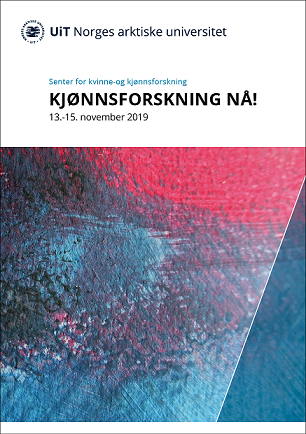(How) Can feminist scholarship save integration research?
DOI:
https://doi.org/10.7557/5.5056Keywords:
immigrant integration, critical feminism, Kjønnsforskning Nå 2019Abstract
This presentation is an attempt to bring critical feminist scholarship into conversation with integration research.
Although integration as a subject of academic inquiry is far from new, it has experienced a global revival. In recent years, multiple research projects – including my own – about integration in various disciplines have been financed and set in motion by research councils and other (political and economic) stake holders. Integration became almost like a buzzword, not only in popular understanding, but in academia as well. With the heightened attention to integration research, also criticism thereof has risen.
Willem Schinkel (2018), for example, directly calls for an abandonment of immigrant integration research, as it is (at best) ignorant towards or (at worst) covering up its methodological biases and neocolonial frameworks.
In my presentation at «Kjønnsforskning Nå!» I would like to think with this kind of criticism and ask whether feminists scholarship can help integration research to overcome its shortcomings and biases.
Feminist approaches have enabled questions about identity politics, politics of belonging and processes of becoming – all of which are central, yet often under-addressed, in integration research. Moreover, feminist studies offer a rich pool of concepts and theoretical approaches, that research designs dealing with integration can take inspiration from, e.g. strangeness, monsters, failure, the importance of affect, and the intra-sections of race, class and (non-binary) gender, etc.
Finally, looking through a critical feminist lens, existing power relations in which integration research is conducted, can be re-assessed, as well as the positionality of researchers in integration research.
Metrics
No metrics found.
References
Schinkel, Willem. 2018. "Against 'immigrant integration': for an end to neocolonial knowledge production." Comparative Migration Studies 6 (31):1-17. http://doi.org/10.1186/s40878-018-0095-1









